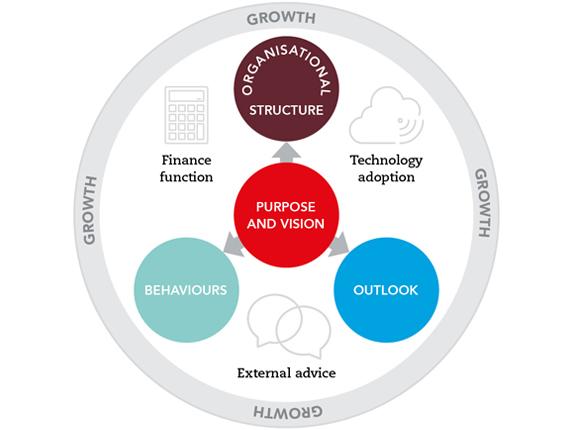When SMEs (small and medium-sized enterprises) experience growth, they can generate a number of important benefits for the wider economy. Yet since the financial crisis, SMEs have contributed significantly less to economic growth in aggregate terms than other sections of the economy. Therefore by understanding high growth firms better, more businesses could adopt the relevant practices which could enable more SMEs to scale-up successfully.
Drivers of productivity
Improved SME productivity is defined as the result of greater efficiencies being created through the process of bringing a product or service to market. There are multiple drivers across areas of business activity that SMEs can develop in order to increase their productivity.
This is important because the more productive a business is the more likely it is to grow. How effective a business is in tapping into these drivers can be the difference between moderate growth and high growth.

A growth strategy for scale-up
As part of an effective approach towards scaling up, SMEs should look to build a strategy which enables a growth culture to be instilled across all areas and activities in their organisations.
In the design of such a strategy, business leaders first need to define a clear purpose and vision across their organisation. This should be used to inform the development of three key areas: the business’s organisational structure, outlook and behaviours.
Collectively, a strategy which addresses these areas could significantly contribute towards developing the mechanisms within a business that enable scale-up to occur.

Top three recommendations for scaling up
Growth can come at any stage of an SME’s lifecycle. This requires business leaders to think strategically about the steps they can take to enable it.
Leadership must define a growth culture – When staff share and are committed to an organisation’s purpose and vision, they are more likely to see its future as their own.
Establish a governance framework to help build resilience – Growth prospects can be supported if SMEs build a governance structure from the outset of their business journey.
Continue developing management team alongside business growth – Those founders who seek to retain control over all aspects of their business may run into trouble as complexity increases
This article was taken from ACCA.
Photo by Anton Murygin on Unsplash.

 4.8
4.8 





















